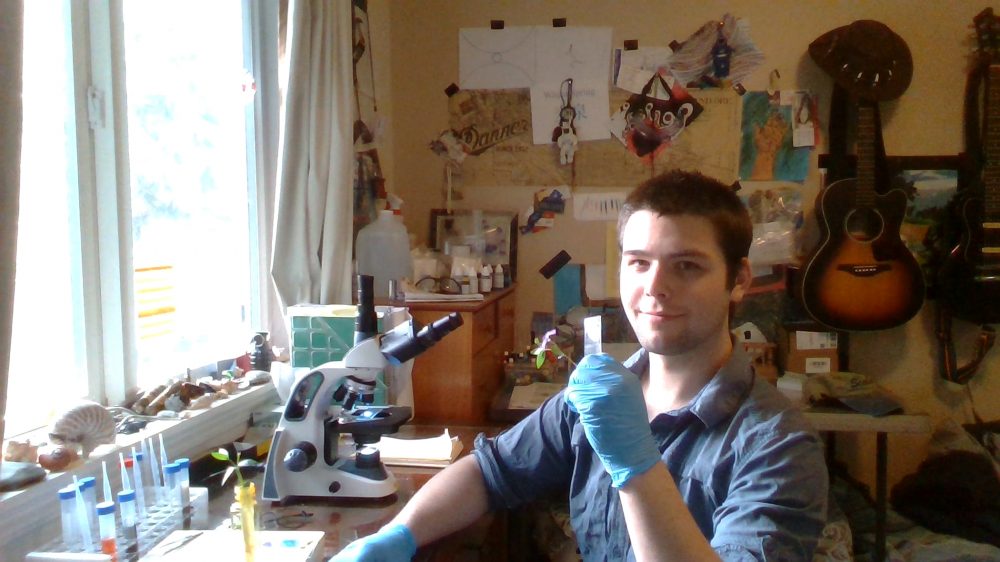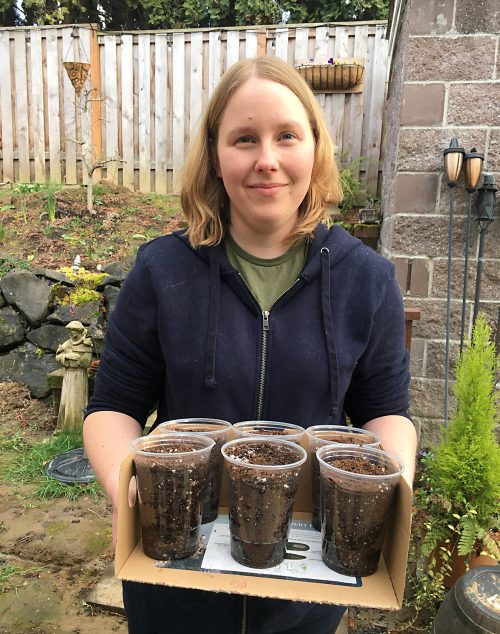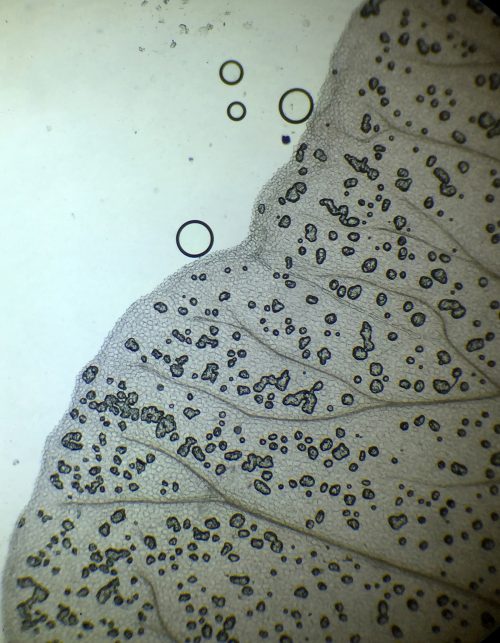This content was published: April 20, 2020. Phone numbers, email addresses, and other information may have changed.
Grand Experiment: Biology faculty are taking research activities online for students
Photos and story by James Hill
In the cozy world of a collegiate biology class, the laboratory portion is where students and their instructor come together and get hands-on with experiments. Labs require students to examine organisms under microscopes and describe what they observe in written reports, as well as study and dissect plants, insects and small animals.
For example, in Portland Community College’s Biology 213 class, students work with the instructor to perform plant research projects where they test the effects of gravity or nutrient content in soil on plant growth or flowering.
In a COVID-19 (coronavirus) world, though, that can no longer happen.
As a result, a new type of experiment is happening at PCC. In biology classes across the college, research is moving from the lab to students’ homes as the college’s classes and business operations have gone online or remote through spring term. But is this an entirely bad thing? One instructor doesn’t really think so.
“We normally conduct our research in a controlled laboratory setting,” said Josephine Pino, who teaches biology courses at PCC, including Biology 213. “When I first learned we would be teaching remotely for lab and lecture, I realized this was a chance to make the plant research more relevant, and that it could actually push students to think more creatively about plant environments and responses that exist in our homes and communities.”
Pino is having students use food scraps, plants outside their homes, or vegetation from a nearby park to conduct their projects in today’s remote learning environment. Using the virtual breakout room feature of their online meeting platform, she guides them through physical activities usually reserved for face-to-face lab time or the research forest at the Rock Creek Campus.
“Though we are just beginning the observation and questioning phase of this research, we are finding that the possibilities are almost endless,” Pino said. “Students are realizing vegetable scraps like carrot tops and onion roots can be experimental study subjects, and there are plants all around outdoors, from the moss on the sidewalks to the trees in our parks. We are currently focused on making detailed observations, and I’m excited to see what each student will come up with.”
One of her students is staying in a rural area during the term and is conducting his research on forests that sustained fire damage. Pino said others are testing the effects produced by salmon, oxygenated water and coffee on plants, while some are looking at their family genetics and cultural backgrounds.
Besides the experiments in the virtual world, Pino said the new way of teaching her biology classes and labs has forged camaraderie between her pupils.
“I loved the first moments when we logged into the virtual lab meeting, and I saw so many smiling, hopeful faces and heard their voices,” she said. “We realized we were genuinely happy to be together again, even if it was strange. I asked how many felt stressed about this whole weird situation we are in, and we all raised up one hand or two, and we laughed together, sighed and started class. It might not have been ‘fun’ in the usual sense, but it was a poignant moment for me.”
The experiment for Pino is taking her biology laboratory components that have never been taught online or remotely at PCC to the virtual world. She and fellow faculty have had to develop lab learning activities for each course, which has consisted of tireless work, collaboration and sharing of resources to get the classes ready. In some cases, one or two lead instructors are producing laboratory teaching plans for many sections of a course. And, what she’s excited about is that faculty are collaborating remotely without regard for campus affiliation or discipline area.
The collective effort has made this virtual experiment a success so far.
“It has been somewhat daunting, but the collaboration and team mentalities of faculty have been crucial,” Pino said. “I realized one day that collectively, the faculty in a particular Zoom meeting had almost one hundred years of experience, and we had an opportunity to put our heads together to innovate and create something different and good for the sake of our students. It felt empowering and fun.
“And our amazing IT and online instructional staff set up training and resources for us to turn to immediately, and we jumped on the treadmill and had no choice but to start running,” she added.
COVID-19 Resources
- PCC has moved to remote operations and classes. The college has put together resources for students and staff related to the college providing online classes and services.



